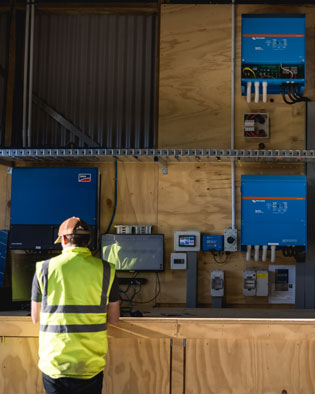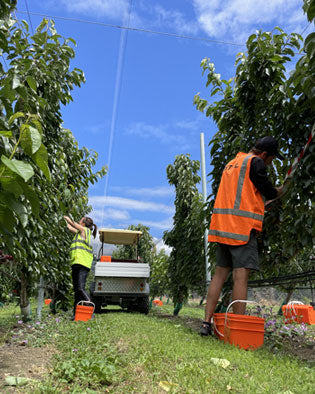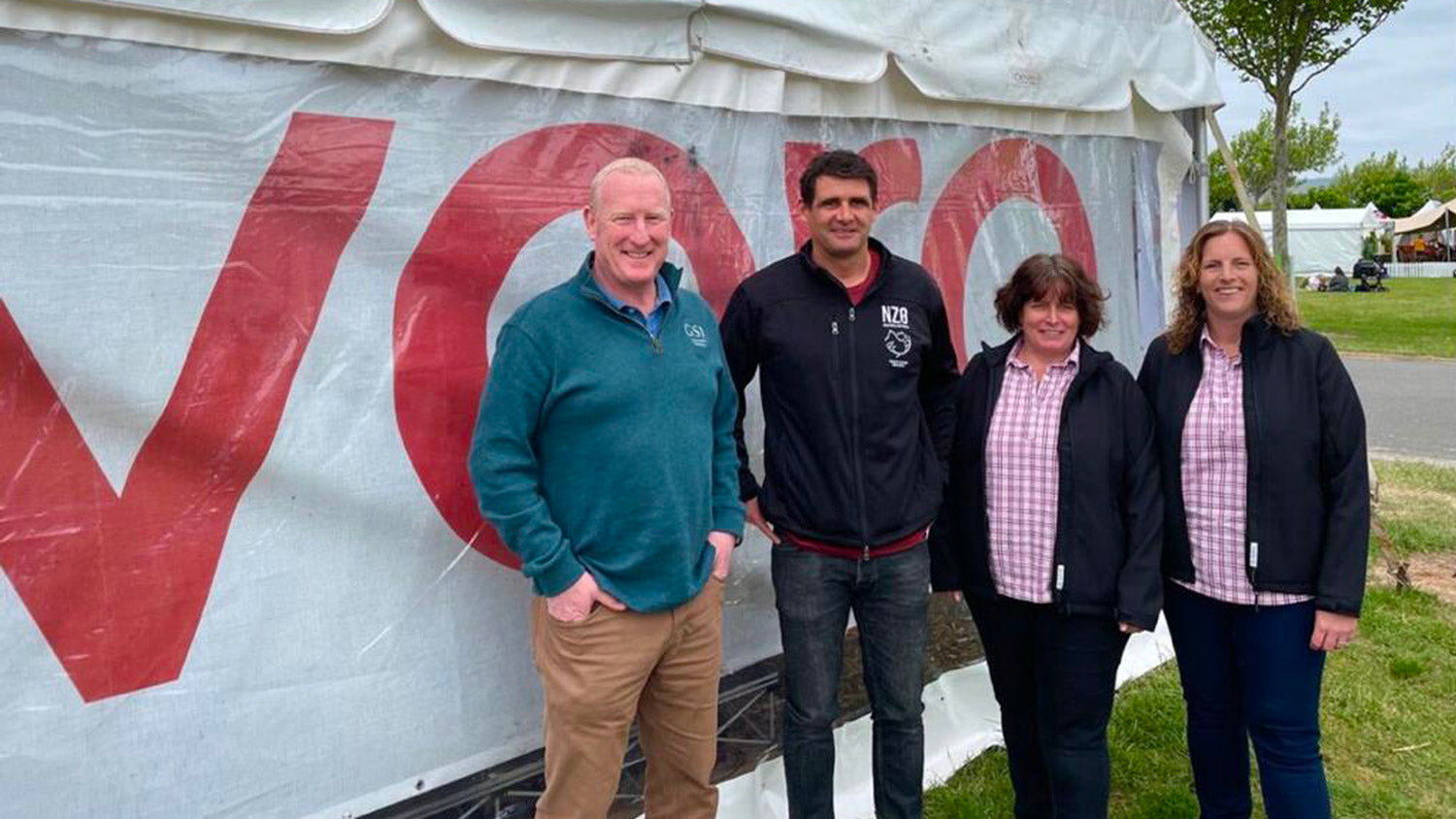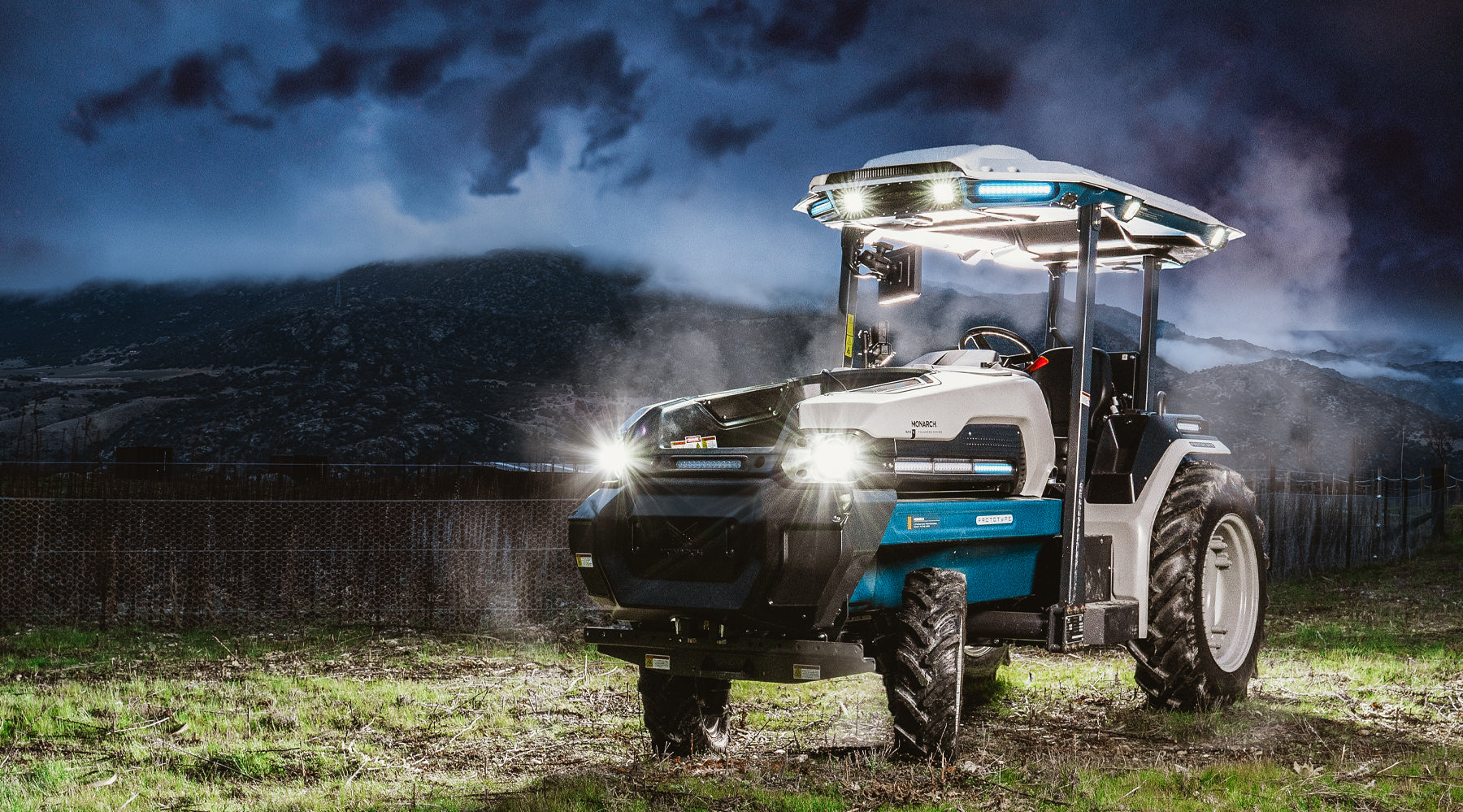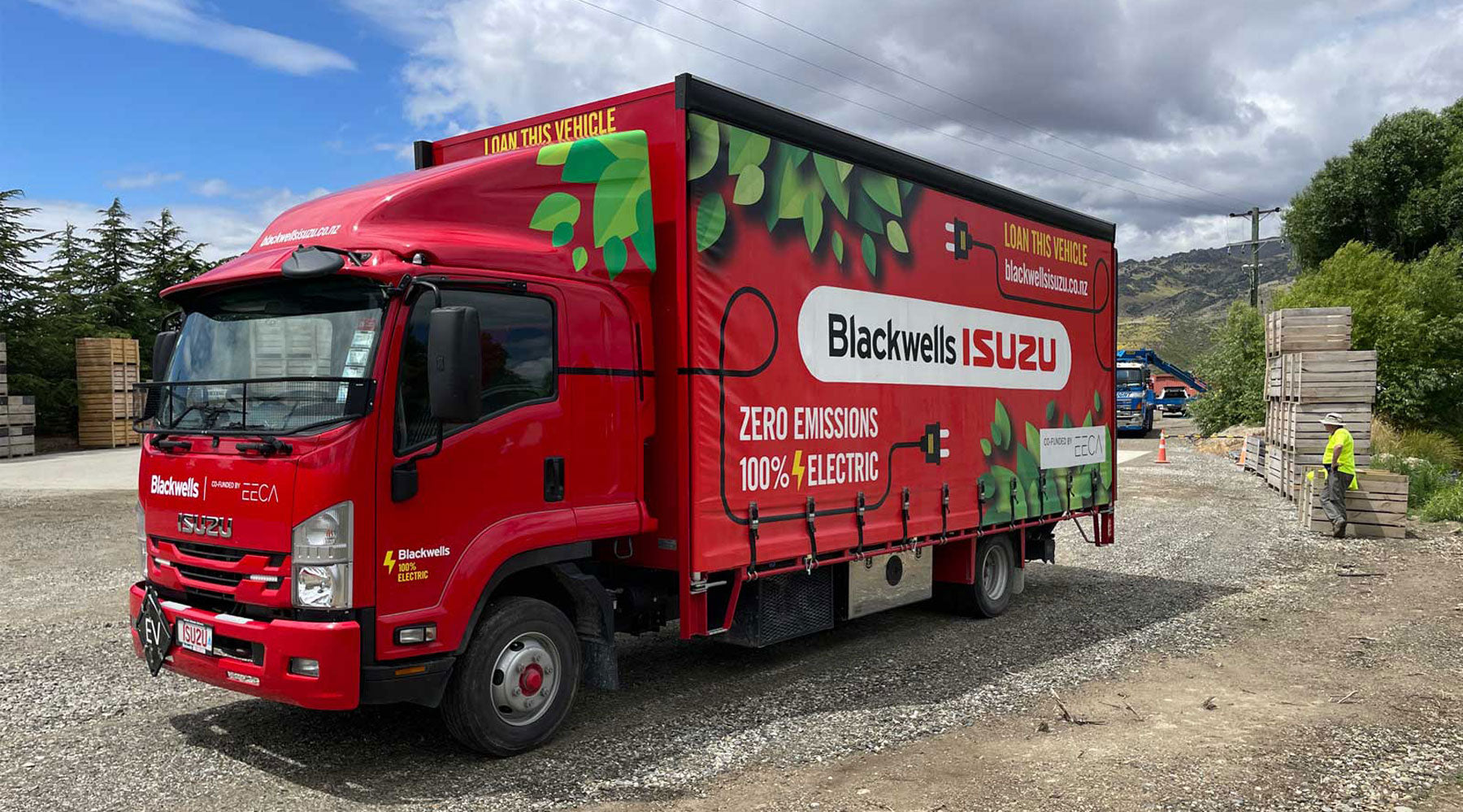
Trialling an 11T Electric Truck
With the drive towards renewable energy across all industries, it is becoming more common to come across other people and businesses that share and support our passion for the climate and facilitating change in the industry.
Hamish MacPherson from Blackwells Isuzu is a great example of this. He has completely converted a 2020 Isuzu FRD600LA 11T truck to electric, and after some initial discussions was more than willing to lend the truck to NZ0 & Forest Lodge for use during our recent cherry harvest.
Specifications
- Fully-electric (converted) 2020 Isuzu FRD600LA
- 11T GVM (7T unladen)
- Original Engine: 6HK1, 7,790cc turbo-diesel which produced 760Nm of torque
- Electric Replacement: 195kW electric motor that produces 3500Nm of torque!
- 138kWh of battery storage
- Range varies greatly based on speed, wind and load, but 150kms is a good figure to base around.

Process & Obstacles (before even getting the truck!)
In our drive to continue to zero fossil fuel journey beyond the gate there were several additional steps and obstacles we had to overcome to be able to use the truck during our harvest period. The first was obtaining a class 2 truck license for our orchard manager, Euan.
Interestingly, upon post review of the course he had to take for the truck license the fundamentals of weight, control, fatigue and load security were all the same, but (in his opinion) at least a quarter of the course was not relevant to electric trucks; subjects such as gear changes, engine braking and refuelling.
While not critical of the course yet, subjects such as regenerative braking, energy efficiency and charging will no doubt need to be addressed by Waka Kotahi (NZ Transport Authority) in the future to start to allow for this adaption towards electrification of heavy vehicles.
Another key consideration is the rules around trucking and fatigue. We had to request an exemption from Waka Kotahi, as currently refuelling time of a truck is not allowed to be classed as rest time for the driver. To Waka Kotahi's credit, they were willing to be flexible, with Euan taking his rest hours while charging the truck which loosely translated to an hour on charging, then hour off for the trip down from Christchurch to Cromwell.
The Trip from Christchurch to Cromwell
Another challenge was planning out the logistics of driving an electric truck with limited range over 500km through rural NZ with a limited charging network. This included avoiding the Lindis Pass due to a lack of electric charging infrastructure in the Tarras, a real problem for any shorter range EV!

Below are some of the truck trip details
- Total distance: 507km (avoiding the Lindis pas)
- Total kWh used: 317kWh
- Average kWh per 100km: 62kWh.
- Total cost at ChargNet sites: $192.44 (at an average of 60c per kWh)
- Trip down included a 1T load of orchard equipment we purchased in Christchurch.
- Estimated diesel saved is 125L or $312.50 at $2.50 per litre (price on date of trip)
- Road user charges saved $87.59 ($172 per 1000km)
- 335kg of carbon saved (2.68kg of CO2e per litre of diesel)
- Time spent charging 7.75 hours
- Time spent driving 7.5 hours
- Average moving speeding 70km/h
While the trip cost in terms of energy, administration and carbon, was lower, it is not quite at the tipping point yet to convince a business to make the switch. This was especially because we were unable to get the trip completed in a day due to reaching the ceiling of how long Euan was allowed to be on the road for before needing to sleep.

Another unexpected consideration was wind resistance, the real killer when it comes to trying to get the most out of the truck over a long distance. The faster you go, the more wind resistance you create, and the more energy you consume. For Euan, he found that driving at 70km/h was the optimum speed for achieving the best balance possible across all the mitigating factors.
As an an example, at 90km/h (max legal speed) the distance the truck could cover was about 150km, but at 70km this range increased to close to 200km+.
Charging Station Challenges & (big) Extension Cords
While the whole trip and project would have also been impossible without the charging stations, our opinion is that the current costs for charging are far to high to make EVs truly an economical solution to fossil fuels.
As always there is an understanding that costs are required to cover infrastructure, and form some revenue, but in our particular situation saving $100 in energy costs on a 500km trip is not enough to make electric trucking commercial when you also take into account labour costs and associated accommodation.
A further challenge was that much of the time charging stations were tucked away in the corners of busy carparks, or in areas that simply did not take into consideration larger vehicles like the truck.

To combat this we asked James from EV-Lution in Dunedin to build a 10m long extension cord that Blackwell's kindly offered to pay for. This cord cost close to $5000, and took a fair few weeks of development to complete. The design is simple, but getting the gear required importing parts from around the world.
Harvest & Benefits
Where we felt the truck came into its own was when we used it for local operations in Cromwell.
Through our pilot orchard, Forest Lodge, this year we harvested approximately 8T of cherries across five different harvest dates. On each harvest date we used the truck to complete transportation from the orchard to the packhouse for washing, grading and packing. It was also used to help other growers with their produce being transported to the packhouse, and a range of local errands.


In total, 828kWh of energy was put into the truck (charging over 3 phase power) to drive approximately 1704kms (47.6kWh per 100km).
From a cost perspective we are a little different than your average EV owner as Forest Lodge is on a wholesale spot price with Simply Energy, as well as having a large solar array (45kW), meaning the average price we paid per kWh of energy we put into the truck was $0.006 per kWh (half a cent per kilowatt hour).
This means that for the 828kWh we put into the truck, the cost was only $5. Equivalent to one coffee!
As a point of comparison across all different methods, and ‘fuel’ types currently possible, the following can theoretically be worked out as a point of comparison across the board for these 828kWh of consumption.
- Diesel Costs. $1000 (plus an additional $292 in RUCs) and 1.1T of CO2e
- ChargeNet: $662
- Standard Retail Power at 25c per kWH: $207 (20% of the diesel cost)
- Solar / renewable energy at the wholesale rate: $5
The Overall Conclusion
From a driving perspective, there were dozens of drivers that had the opportunity to take the truck for a test drive. The general consensus being that it was a pleasure to drive. No noise, vibrations, and regenerative braking being an excellent replacement to engine braking.
From a cost perspective, for local use, if you are able to avoid echargers across your journey, there is huge operational cost and carbon that can be saved with an e-Truck. Where it currently gets tricky is if you need to go beyond the initial range, the costs from external charging stations, and additional equipment requirements (ie the giant extension cord) do not make it worthwhile.
Many thanks to everyone involved in converting the truck, letting us use it and the support across the whole journey. This included Blackwells Isuzu, Ev-Lution, ChargeNet and EECA.
This allowed us to push our zero fossil fuel journey one step further past the farm gate, and combined with our EV’s delivering to Central Otago and Christchurch and surround areas meant that a hefty chunk of our cherries were delivered from orchard to customer fossil fuel free.
